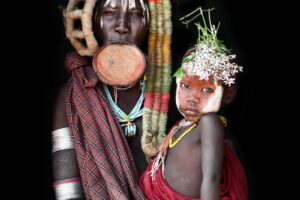Brazil, officially known as the Federative Republic of Brazil, is the largest country in both South America and Latin America. With a population of over 210 million people, it is also the fifth most populous country in the world. Brazil is known for its diverse culture, rich history, and natural beauty, making it a popular tourist destination.
Geographically, Brazil shares borders with ten countries, including every South American nation except for Chile and Ecuador. It has a vast and varied landscape, featuring the Amazon rainforest, the Pantanal wetlands, the Brazilian Highlands, and a long coastline along the Atlantic Ocean.
One of the most prominent features of Brazil is the Amazon rainforest, which is often referred to as the “lungs of the Earth.” It is the largest tropical rainforest in the world, covering a significant portion of the country’s northern region. The Amazon rainforest is home to countless species of plants and animals, many of which are unique to the area. It plays a vital role in regulating the planet’s climate and is a crucial source of oxygen production.
Brazil has a diverse population with a mixture of ethnicities and cultures. The majority of Brazilians are of European, African, and indigenous descent, resulting in a vibrant and multicultural society. This diversity is reflected in the country’s traditions, music, dance, and cuisine. Brazilian cuisine is famous for its barbecued meats, feijoada (a black bean stew), and a variety of tropical fruits.
Football (soccer) holds a special place in Brazilian culture, and Brazil is often referred to as the “soccer nation.” The Brazilian national football team is one of the most successful in history, having won the FIFA World Cup a record five times. Football stars like Pelé, Zico, Ronaldo, Ronaldinho, and Neymar have become global icons, representing Brazil’s passion for the sport.
Brazil has a mixed economy, with agriculture, mining, manufacturing, and services sectors playing significant roles. It is one of the world’s largest producers and exporters of agricultural products, including coffee, soybeans, beef, and sugar. Additionally, Brazil has a growing industrial sector, particularly in the automotive, aerospace, and technology fields.
Despite its many strengths, Brazil faces various challenges. Income inequality, poverty, and social issues are persistent problems, particularly in urban areas. Environmental concerns, such as deforestation and illegal logging in the Amazon rainforest, also pose significant challenges.
In recent years, Brazil has made efforts to promote sustainable development, conservation, and the preservation of its natural resources. The country has implemented initiatives to reduce deforestation, increase renewable energy sources, and protect indigenous lands. International collaborations and partnerships are crucial in addressing these challenges and ensuring a sustainable future for Brazil.
In conclusion, Brazil is a vast and diverse country with a rich culture, natural wonders, and a passionate population. From the Amazon rainforest to the vibrant cities, Brazil offers a unique experience to visitors. While facing some socio-economic and environmental challenges, Brazil continues to strive for progress and sustainability, making it a fascinating country to explore and learn about.



















Add Comment